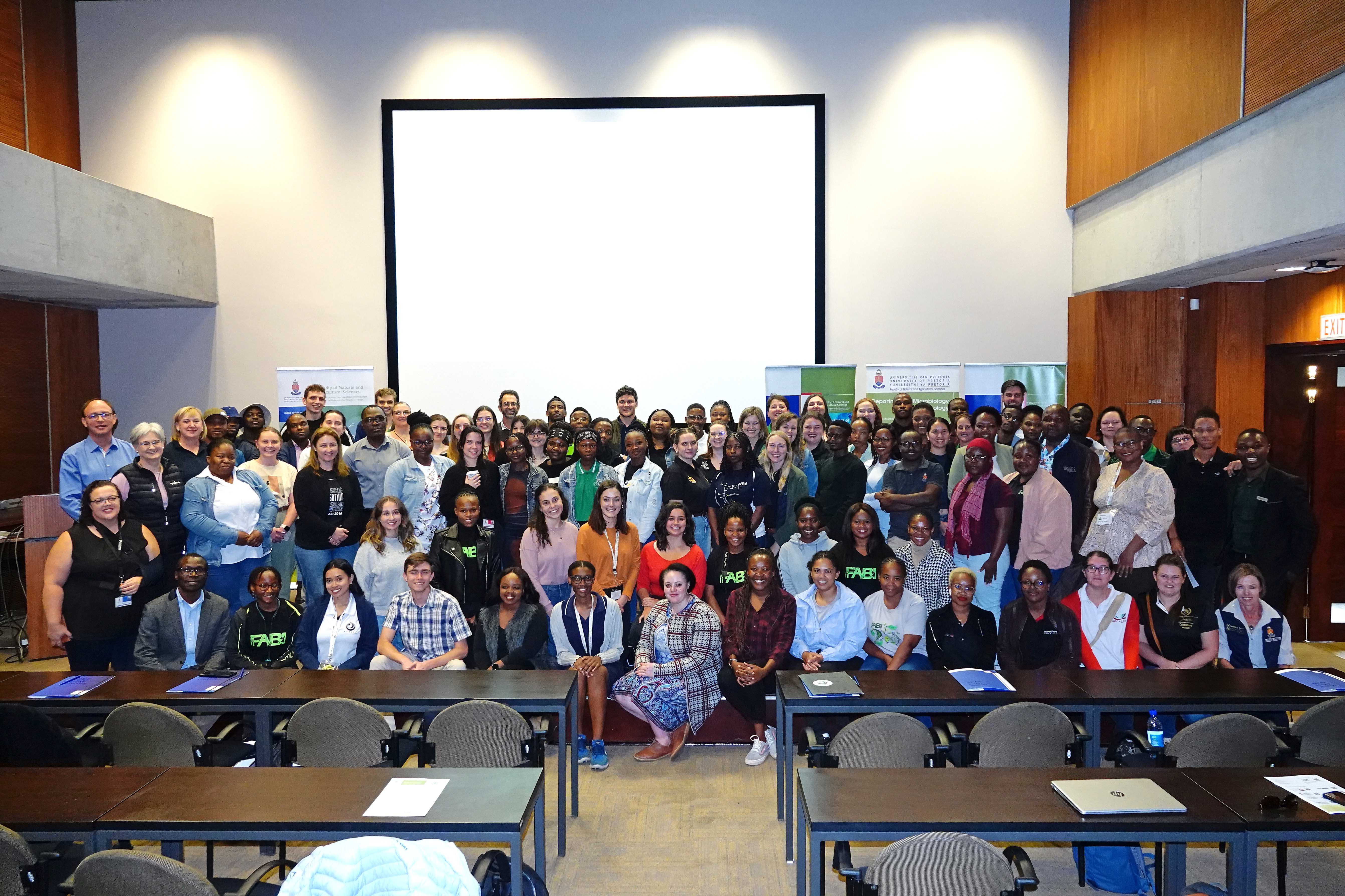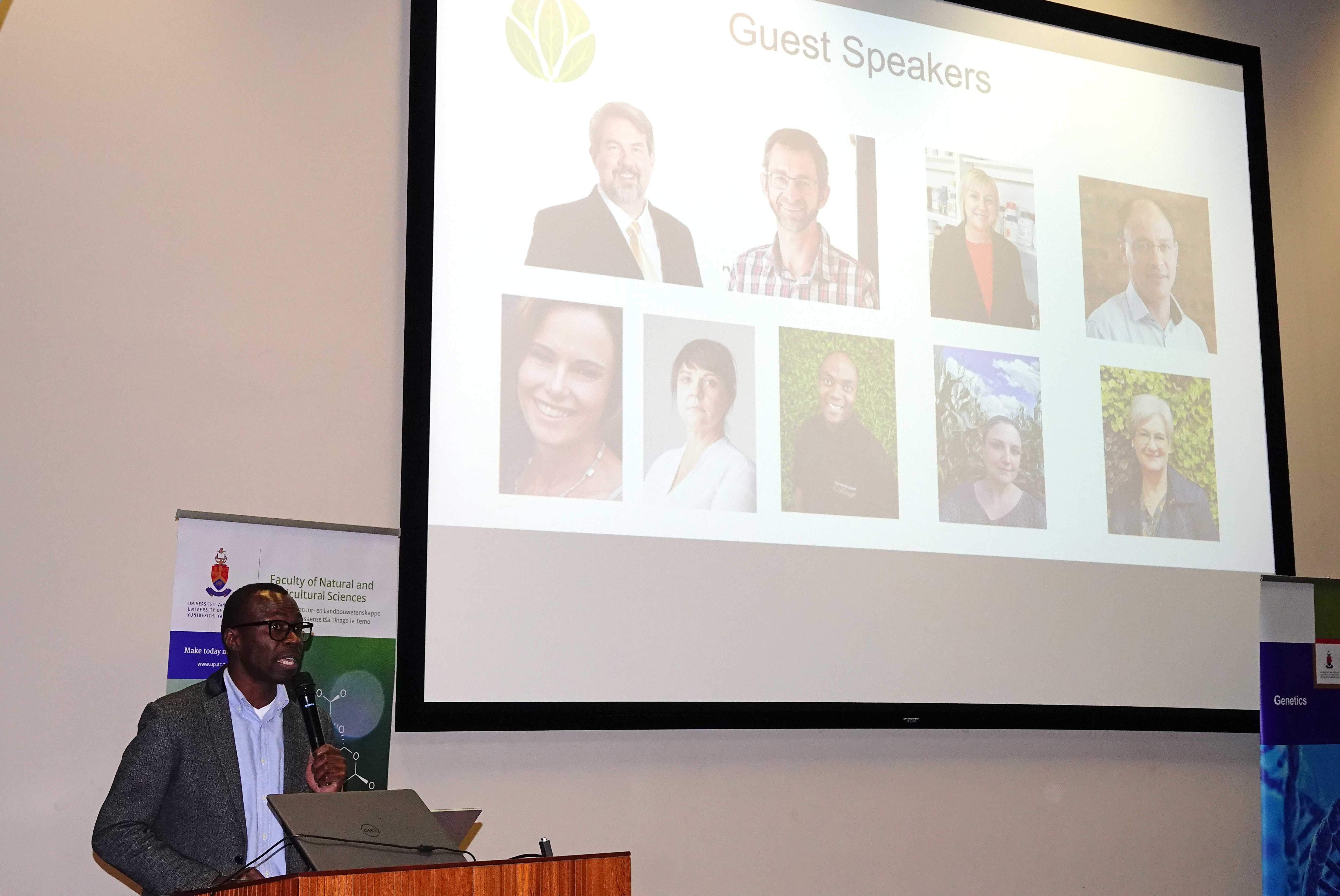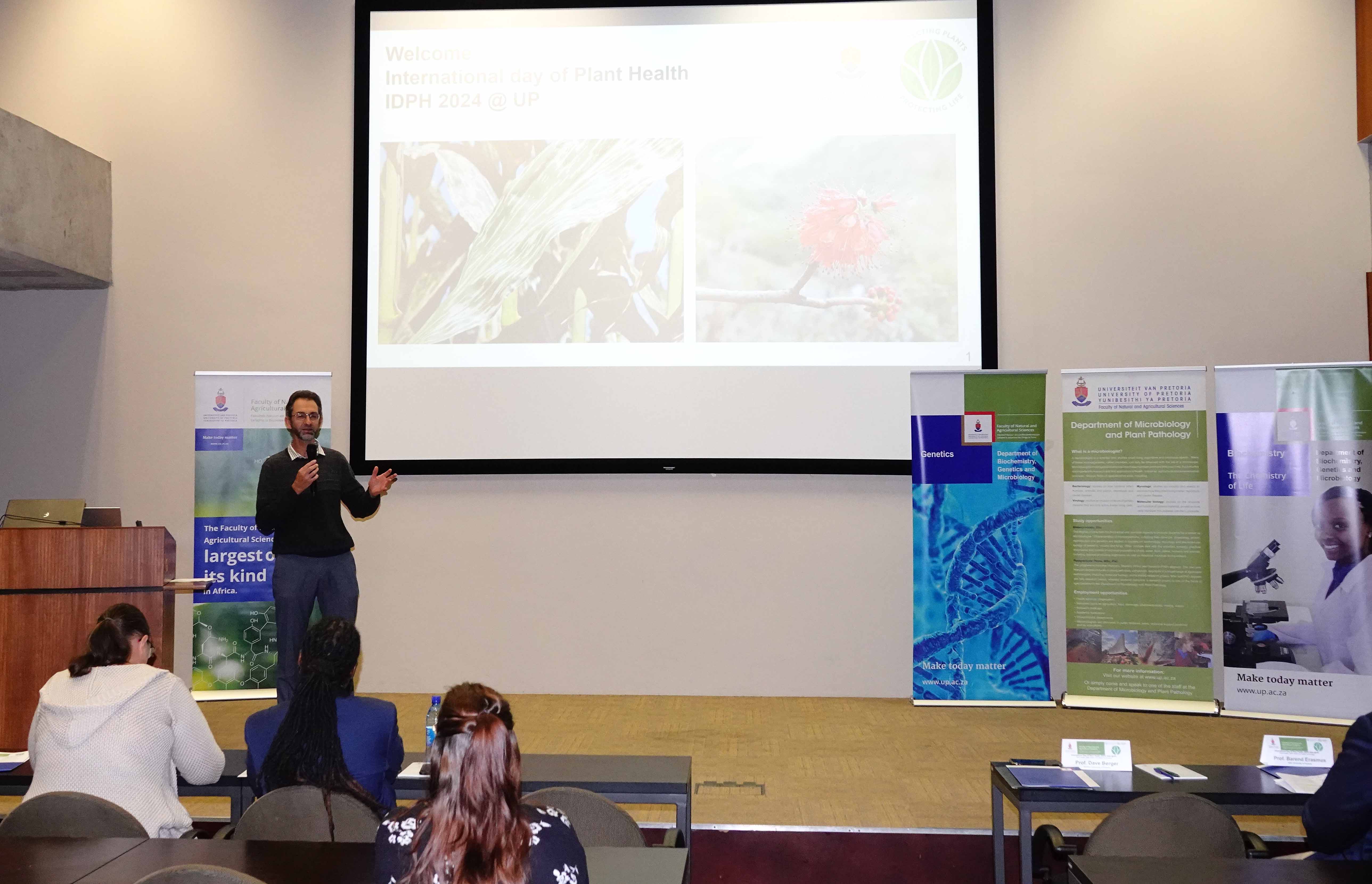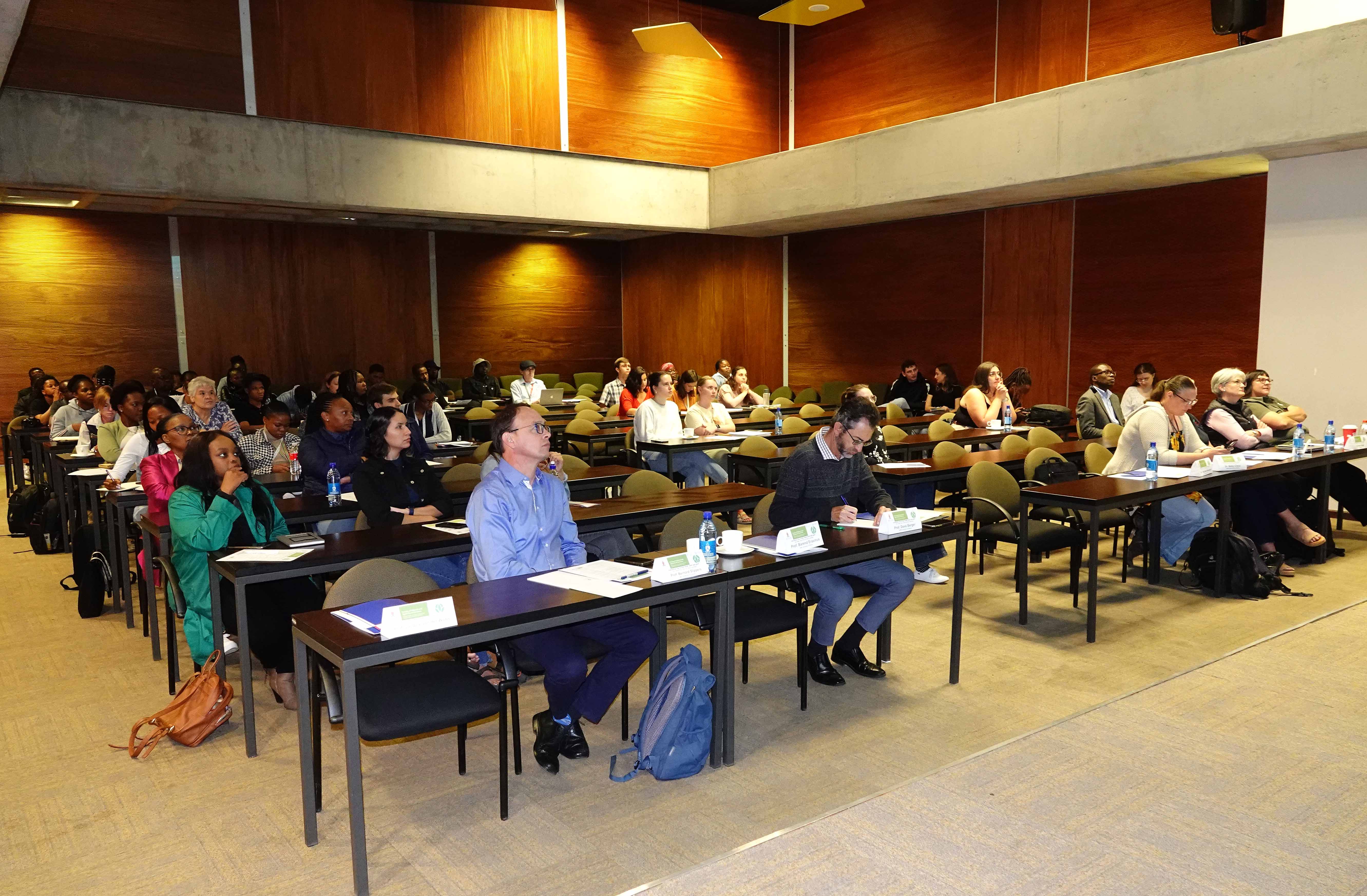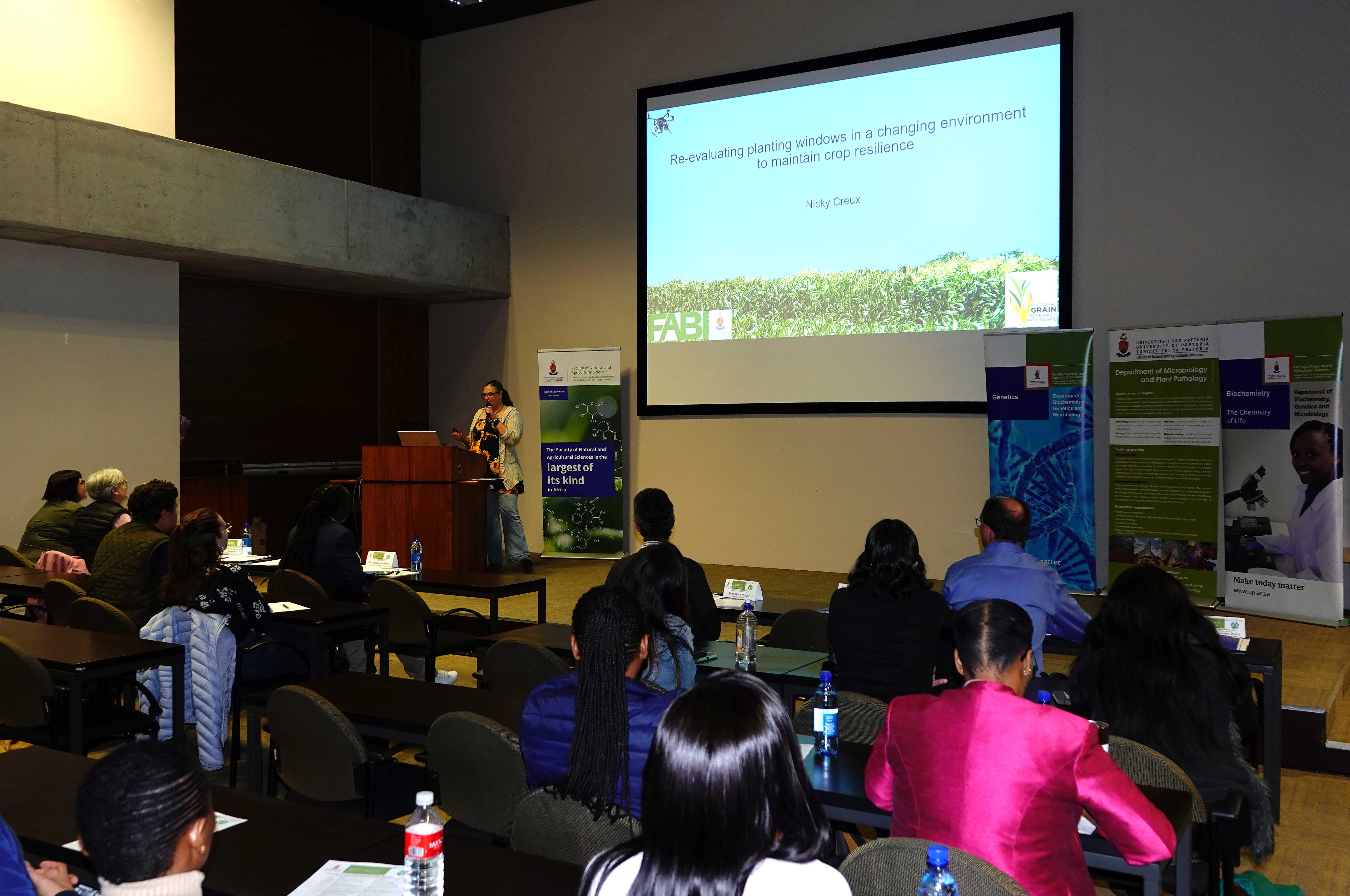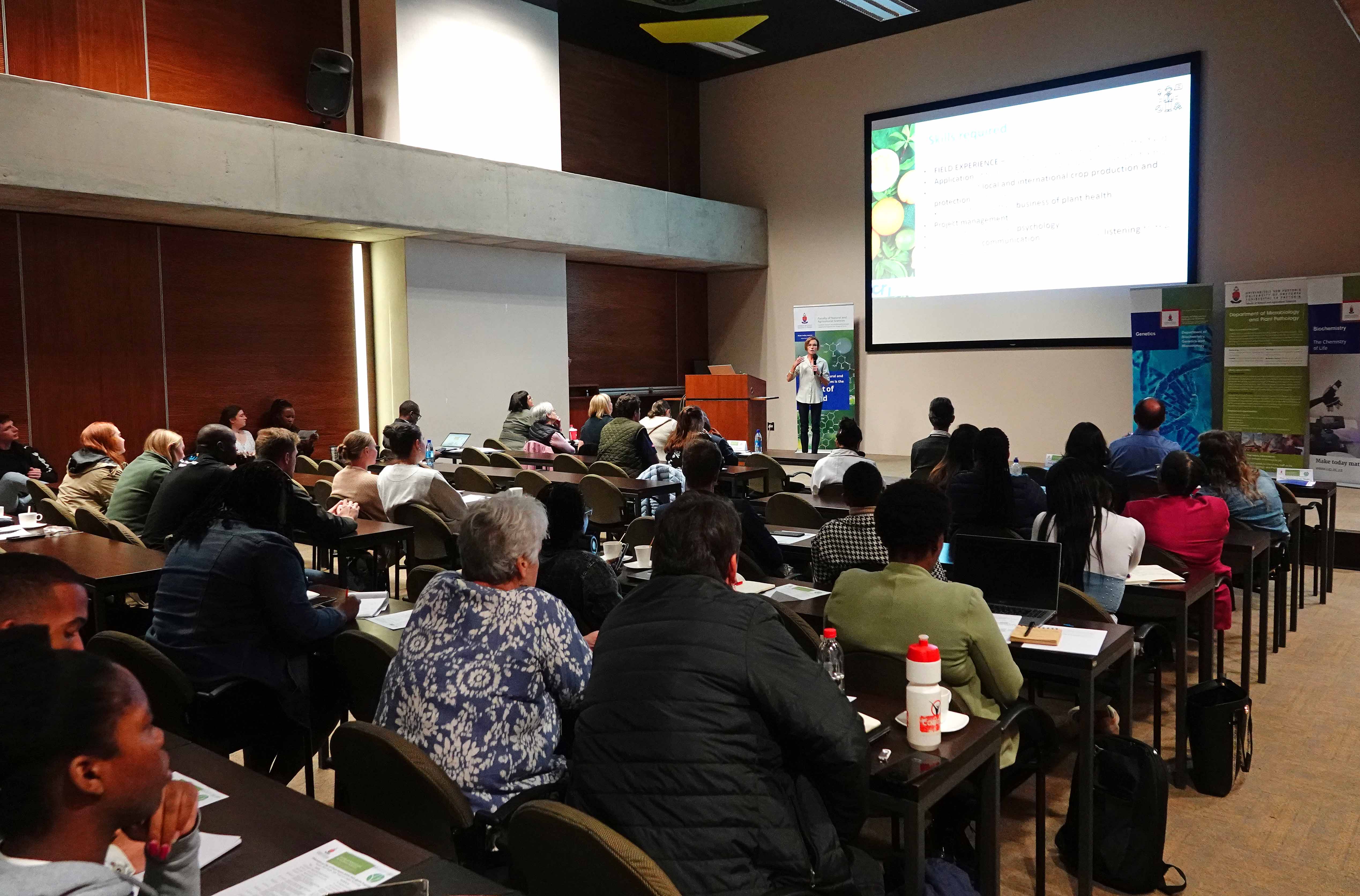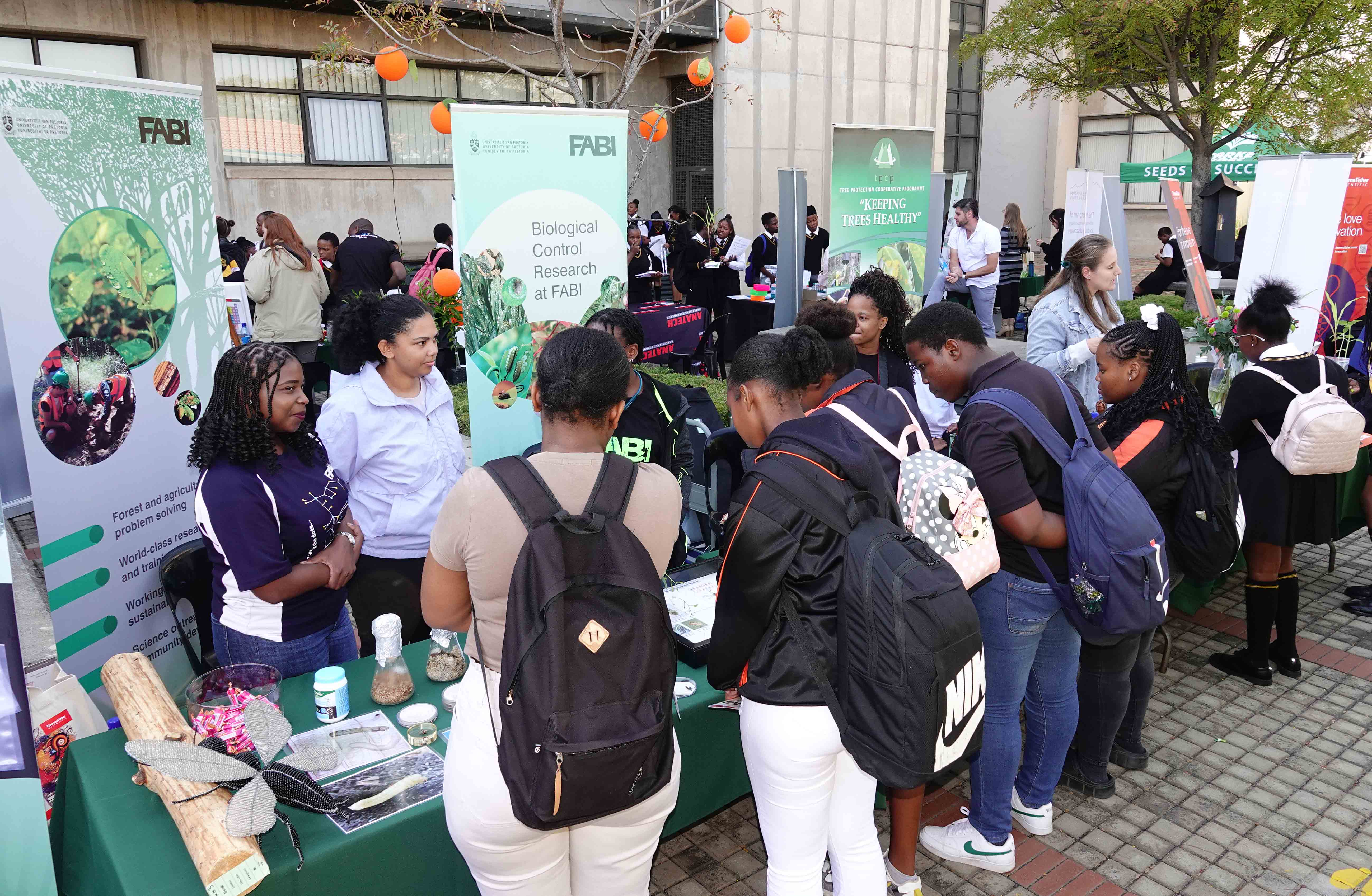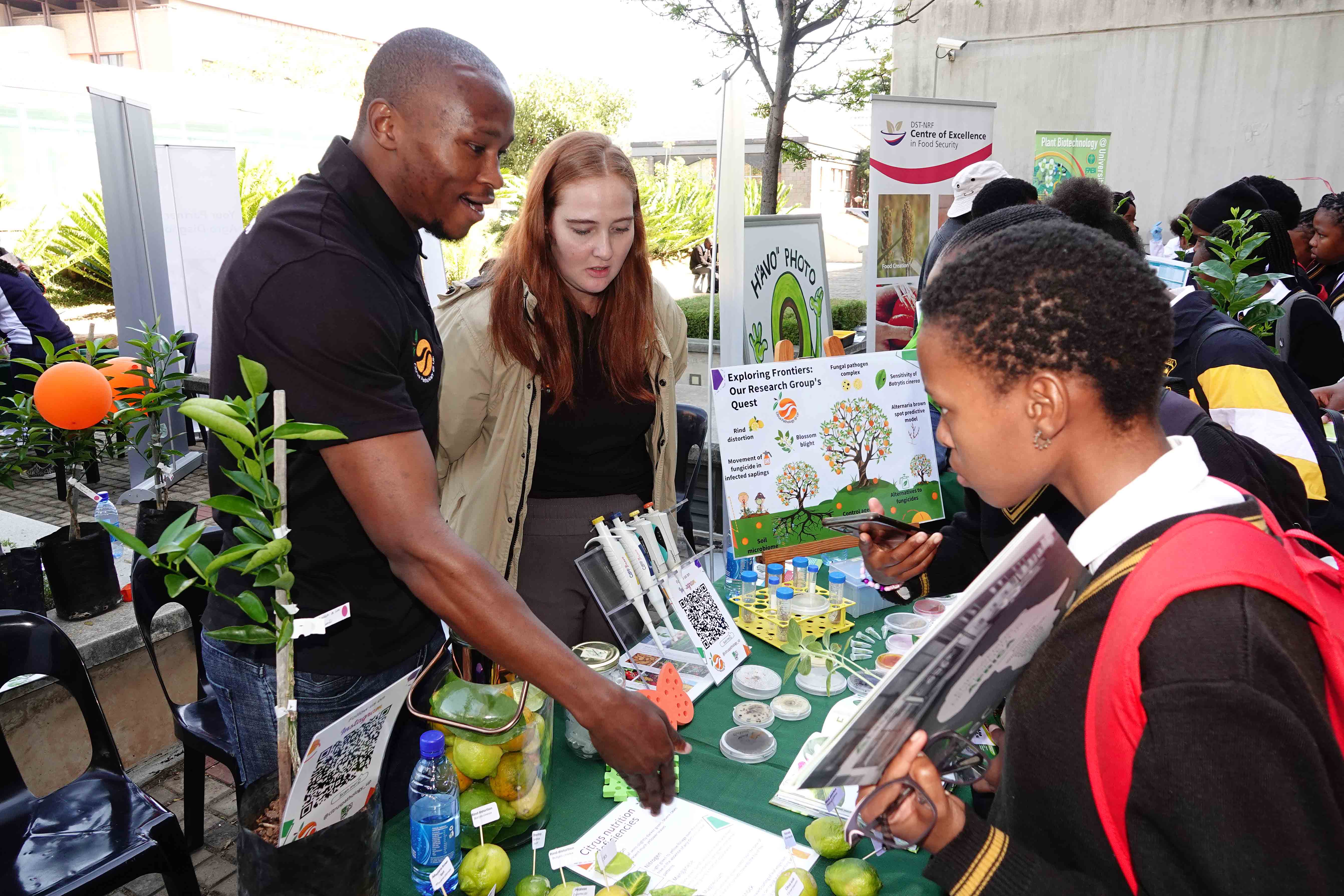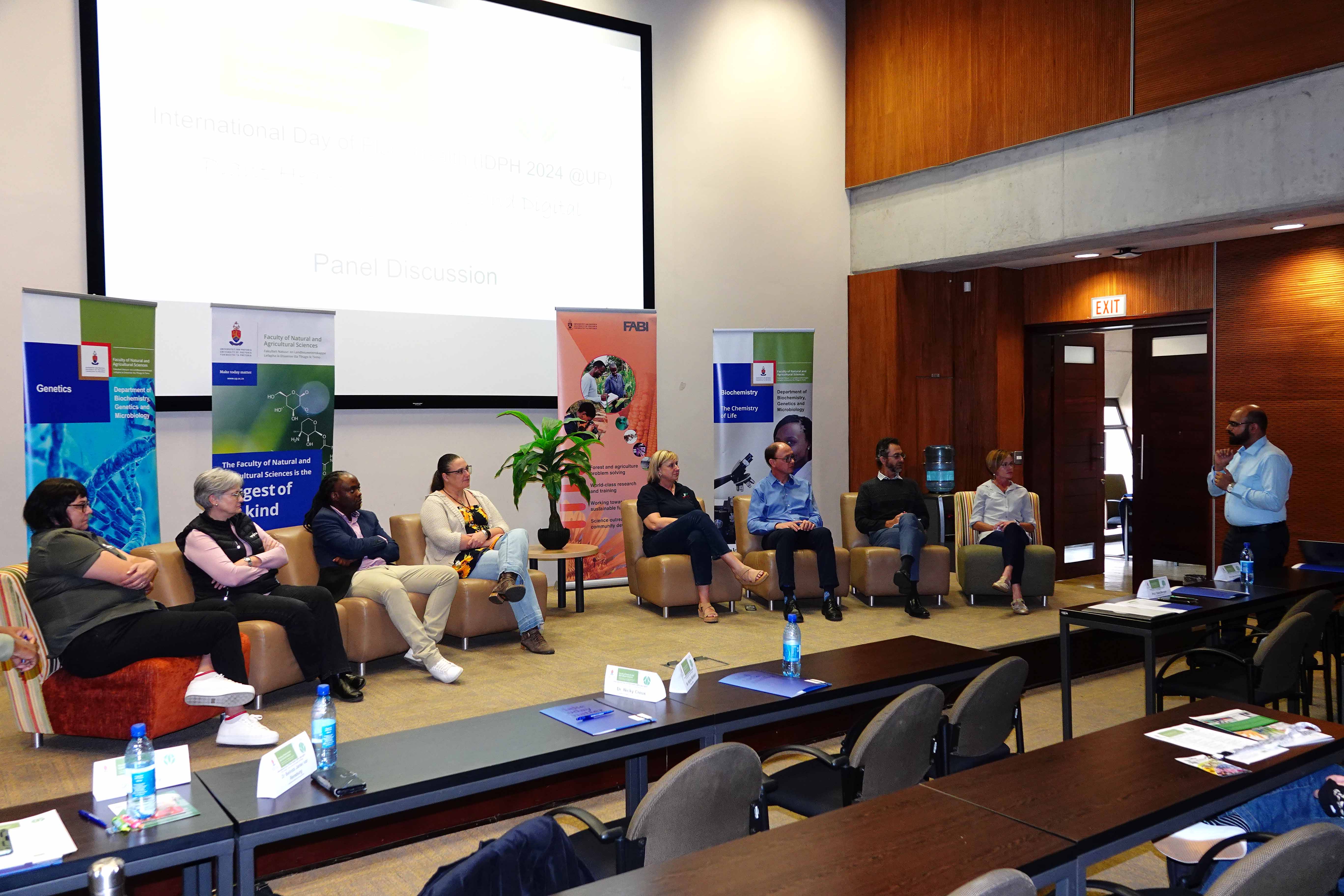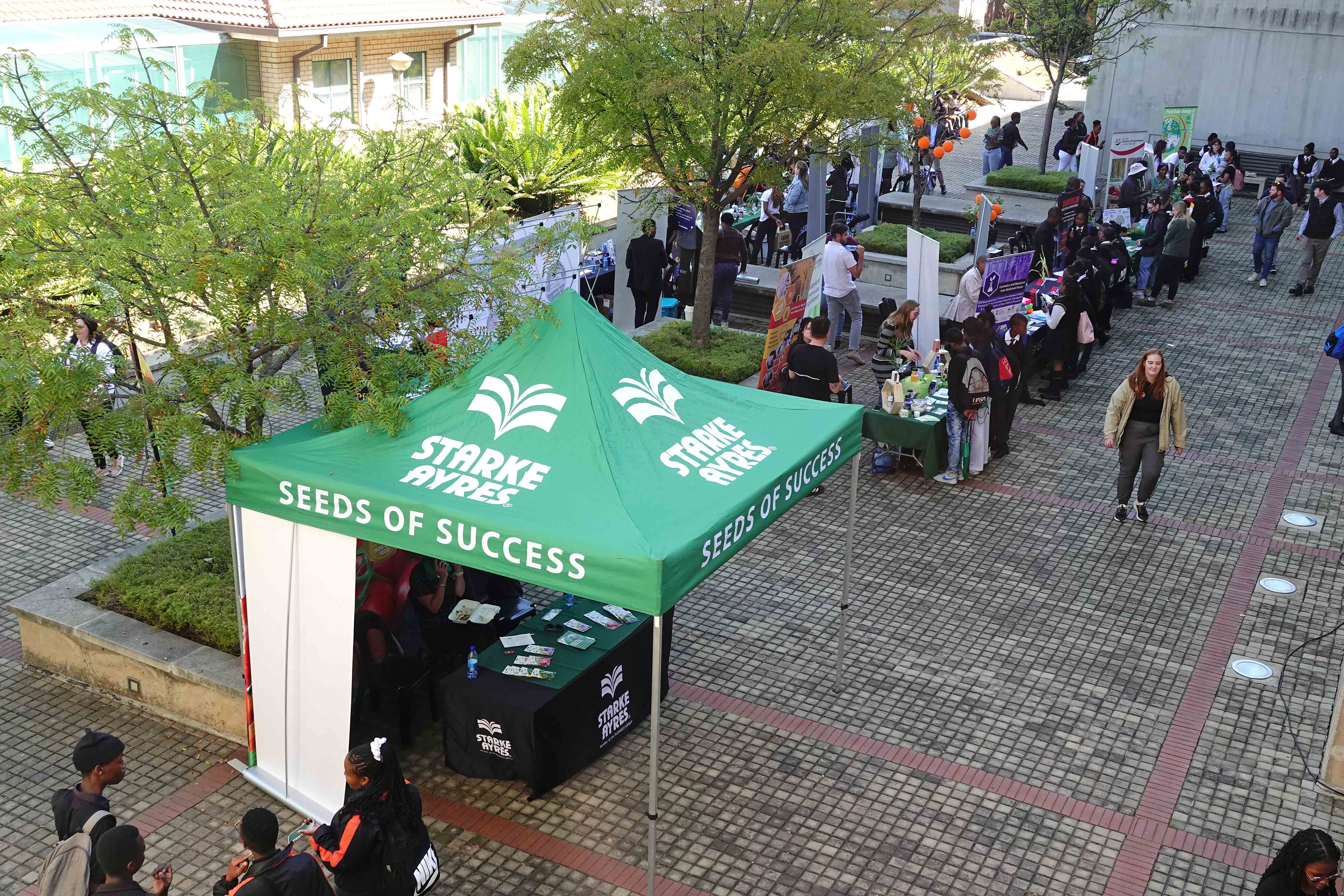Celebrating International Day of Plant Health 2024 at UP 2024-05-24
May 12 officially marks the day that the global community celebrates the UN-designated International Day of Plant Health (IDPH). On 10 May 10, the University of Pretoria's Faculty of Natural and Agricultural Sciences held a successful event ahead of the global IDPH celebration. This year’s theme "Plant Health, Safe Trade, and Digital Technology" brought together a diverse group of attendees including academic staff, students, industry leaders, and company representatives. The event was a significant success, showcasing the university's commitment to advancing plant health through innovative digital technologies.
The Dean of the Faculty, Prof. Barend Erasmus, officially opened the event, emphasizing the importance of bridging the gap between academia and industry to produce graduates who are ready to meet industry needs. Prof. Dave Berger, the Head of the Department of Plant and Soil Sciences, welcomed the attendees and posed a pivotal question: "How can we use digital technology for safe health?" This set the stage for a series of insightful talks and discussions throughout the day.
A range of experts from academia and industry shared their perspectives, research findings and case studies on the application of digital technology and safe trade in plant health. They included Michael Mutekeri (Regina Analytics), Dr Nicky Creux (FABI), Dr Elbe Hugo (Syngenta), Dr Belinda Janse van Rensburg (ARC), Prof. Jacquie van der Waals (Citrus Research International) and Isabella Bezuidenhout (South African National Seed Organization (SANSOR)).
The University also welcomed approximately 90 learners from the LEAP Science and Maths School and Mamelodi Secondary School, who received a rich educational experience as part of the IDPH learner program. They attended seminars on Plant Biotechnology and Plant Pathology presented by Dr Markus Wilken and Dr Khumbuzile Bophela-Dimpe, respectively. The learners were also taken on facility tours that included the FABI diagnostic clinic and phytotrons, sequencing facility, and Plant Pathology's diagnostic MALDI-TOF and Digital drop PCR facilities.
The event also featured an exhibition where a diverse group of companies and organizations presented their products and services. Participants included Anatech, Inqaba Biotech, Thermofisher, Starke Ayres, Lasec, ARC, and SANSOR. Research from various sections of the Department of Plant and Soil Science, including Plant Biotechnology, Medicinal Plant Science and Plant Pathology were showcased alongside contributions from the Citrus Health Research Group and FABI.
The day concluded with a dynamic panel discussion that highlighted the critical role of digital technology in promoting plant health. The panel made a call to action for greater collaboration between researchers, industry, and policymakers to harness the power of digital innovations. Chairs of the organising committee for the event, Dr Nsibo and Dr Bophela-Dimpe stated that, “Plants play critical roles in sustaining life. It is therefore everybody’s obligation to protect them so that they can sustain the life of humanity. Their health matters to the same extent as that of people.” This was during an interview with the host, Mmatsheko Mosito of “Planting The Seed”, broadcast on Channel Africa that was held on Sunday, 12 May. The discussion underscored the importance of working together, to promote plant health, and secure safe trade, thereby helping to ensure food security, protect biodiversity and boost economic development.
The University of Pretoria's celebration of IDPH 2024 was a testament to the power of collaboration and innovation in advancing plant health. The event not only highlighted the university's role in leading research and education but also underscored the importance of digital technology in shaping the future of agriculture. As we move forward, the insights and connections forged during this event will play a crucial role in addressing the challenges of plant health on a global scale.


